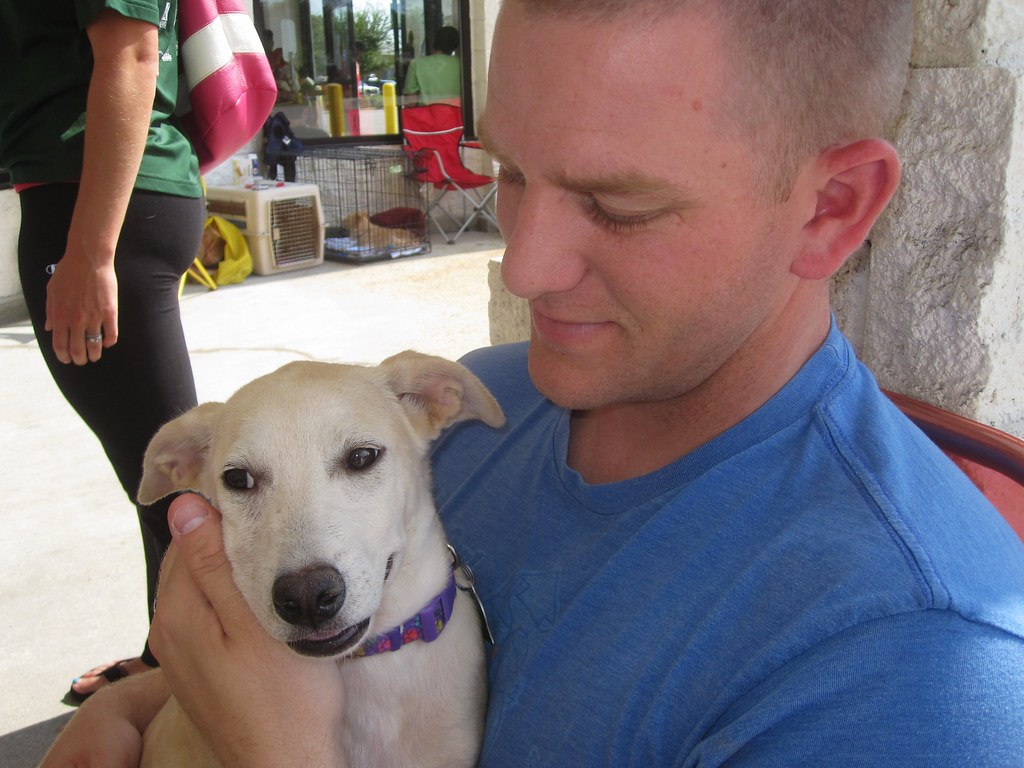One of the saddest things I became aware of when I entered Mercy College’s canine training program in 1990 was the number of dogs returned to the shelter they were adopted from because they failed to meet the expectations of what the new owners expected a dog to be. Disappointing for the adopters but tragic for the poor dogs, who did nothing wrong but were just not the right fit for that particular family. The poor dogs, were just feeling safe and getting used to their new home, settling in and getting into a routine when they find themselves back in the cold, often noisy institutional environment of a shelter.
Over the years this continues to pain me and seems so unnecessary. I always admire shelters and organizations that have a behavior consultant or trainer on hand dedicated to matching up dogs with owners. Life is not easy for volunteers, shelter staff and other workers dedicated to helping homeless animals. They are overworked, underpaid if paid at all and doing the best they can. This is not about blame. This article is about educating prospective adopters, shelter staff and other rescue groups looking for guidance, about how to ensure they find a match that turns into a forever home for a homeless dog.
Some shelters and even some rescue groups do a better job than others of matching a dog’s drives and traits with the lifestyle of the prospective adopter. I sometimes chuckle when a person contacts me about one of my available rescues and say they want to adopt the dog because they just “LOVE the way that dog looks.” I wonder how many human marriages end in divorce because after the initial physical attractions cools off a bit the partners realize they have nothing at all in common.
I always will remember the adult sister of someone who had sought me out to help her and her family years back get the right dog for them. The adult sister was single, lived and worked in Manhattan, was a jogger and generally jogged 5 miles a day, sometimes more on her days off from work/. She wanted a dog to run with. She adopted a very sweet middle age, low energy dog because she was attracted to the dog’s appearance. The problem was that the dog was more of a couch potato than a runner and she ended up returning to dog to the shelter. It was after that that she first contacted me. I went to meet her in her tiny NYHC apartment and could see immediately that her own energy level was very high and that a dog that would meet her expectations needed to be a younger, physically active dog. I had a beautiful young male APBT that LOVED to exercise and run. It seemed like a match made in Heaven. This woman talked fast, moved fast and thrived on being on the go. This young boy that I adopted out to her fit the bill and became her daily jogging partner and beloved companion.. I showed her how to keep the dog mentally exercised while she was a work with interactive dog toys so that the dog got both the physical and mental exercise her needed be content and fulfilled. I never forgot however the dog that she returned and only imagined how sad he was to be back in a shelter environment.
Our local shelter once called and asked me to meet a family at the shelter that was very interested in this one particular dog. They were not sure if this was a good match or not. When I met the family and asked about their leisure activities, lifestyle, etc it seemed to me that they needed a dog that had a lower energy level and that would be content laying by someone’s feet while that person read the newspaper. The dog they were attracted to was very high energy. After I talked to them, about the disparity in their energy levels I asked them to take a look at a few dogs that I thought they would be happier with. They initially balked but when I took several dogs that I thought were more suitable, out of their shelter runs separately and each interacted with the family, I could see the light bulb go off in their heads. We then had all those lower energy dogs back in their respective runs and brought out the dog they initially wanted. After the dog jumped all over them and ran around the “meet and greet pen” frenetically, I suggested they take that dog for a walk. They made their own decision that this dog would likely be too much for them to handle and actually left with a dog that I felt confident would be their forever dog.
My recommendations are as follows:
- Never chose a dog just by the way they look. Looks can be deceiving. A small fluffy kind of dog may not be as sweet or as tolerant s its appearance make you think it is.
- Do your homework before you go looking for a dog. This prevents you from making a spur of the moment decision based on looks.
- Research the breed of dog of if a mix, the breeds that make up the dog you want. Make certain that their drives and traits are in sync with your lifestyle.
- The age as well as the breed will determine how energetic the dog is. If your idea of a nice Sunday afternoon is sitting on the couch, reading the newspaper, and having a dog lay at your feet while you do this, you probably want to look at older dogs and not puppies. Puppyhood is like having a new baby. Puppies are adorable but they are a lot of work. First of all there is Potty Training to deal with, chewing furniture or your shoes, nipping with those little needle like puppy teeth just to name a few.
- The size of a dog matters as well. People mistakenly think that small dogs are easier than large dogs. Not so! If you have very young children/toddlers, a young large breed dog may knock them down just out of enthusiasm but an older, calmer, large dog may be perfect
I used to laugh when clients would call very small dogs “ankle biters” but if the dog is young and nippy, the ankles are the easiest place to reach on a human. In addition think before adopting as to whether you want a dog that requires professional grooming on a regular basic. If anyone in the household is allergic that are several hypoallergenic breeds such as Soft Coated Wheaten Terrier, poodles, and many others to choose from. Do your research before adopting your dog.
When in doubt meet with a trainer or behavior consultant who can go with you to assess the dog you are looking at. They are great resources for helping ensure you get a dog that is a great match for you and your family. They may charge a small fee but trust me, it is money well spent.




